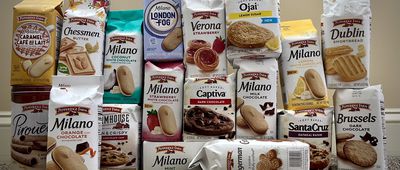Foiled Again
While you can use aluminum foil to cook certain foods and prevent them from drying out (and even use foil to clean quite a few things), the hack doesn't apply to all foods. This is due to the potential for aluminum to leach into certain foods or ingredients at high temperatures. This can happen especially with acidic or spicy foods, which can react with the foil and cause traces of aluminum to dissolve. Consuming high levels of aluminum has been linked to various health issues, including osteoporosis and an increased risk of Alzheimer’s disease.
Additionally, cooking certain foods in aluminum foil can cause the dish to develop an off-putting, metallic taste. Here are nine foods you should never cook in aluminum foil.


















